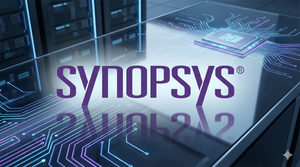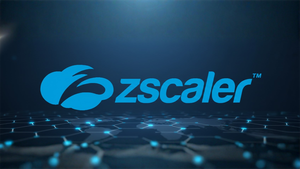The world of real estate investing has long been characterized by high barriers to entry, complex paperwork, and a lack of liquidity. For centuries, owning property meant significant capital, lengthy transaction times, and dealing with a web of intermediaries. But a powerful technological shift is underway, fundamentally altering this landscape. Real estate tokenization is moving from a niche concept to a mainstream force, creating unprecedented opportunities for investors and property owners alike.
This transformation is not a distant dream; it's happening now. By converting property rights into digital tokens on a blockchain, we are unlocking a new era of accessibility, efficiency, and liquidity in the property market. This article will explore the core concepts of real estate tokenization, examine the latest developments driving its growth, and discuss the profound impact it's having on how we buy, sell, and manage property assets.
What Exactly Is Real Estate Tokenization?
Understanding the Concept
At its heart, tokenization is the process of creating a digital representation of a real asset on a blockchain. In the context of real estate, this means a property—be it a commercial building, a luxury apartment, or a portfolio of rental homes—can be divided into numerous digital tokens. Each token represents a fractional share of ownership in that property.
How Tokenization Works
Think of it like shares in a company. Instead of buying an entire building, you can purchase one or more tokens that correspond to a small piece of it. These tokens are recorded on an immutable, decentralized ledger known as a blockchain. This technology ensures that ownership is transparent, secure, and easily transferable without the need for traditional intermediaries like brokers, lawyers, and banks.
Key Benefits of Real Estate Tokenization
The benefits are immediate and substantial. For investors, tokenization democratizes access. You no longer need millions of dollars to invest in prime commercial real estate. Instead, you can start with a much smaller amount, diversifying your portfolio across various properties and locations. For property owners, tokenization provides a novel way to raise capital. Instead of taking out a large loan or selling the entire asset, they can tokenize a portion of their equity, unlocking liquidity while retaining control.
Key Drivers Behind the Tokenization Wave
Several factors are converging to accelerate the adoption of real estate tokenization. The technology has matured, regulatory frameworks are becoming clearer, and the market is increasingly recognizing its value.
Technological Maturity and Interoperability
Early blockchain platforms were often slow and expensive to use. However, the latest generation of blockchain technology offers faster transaction speeds, lower costs, and enhanced security. Furthermore, advancements in interoperability—the ability for different blockchain networks to communicate with each other—are making it easier to create and trade tokens across various platforms. This creates a more seamless and unified global market for tokenized assets. Keeping up with the latest tokenization trends is crucial for any investor looking to understand where this technology is headed and how to best position themselves for future growth.
Evolving Regulatory Landscapes
Governments and financial regulators worldwide are beginning to establish clear rules for digital assets. While the landscape is still evolving, this move toward regulatory clarity is providing investors and institutions with the confidence they need to participate in the tokenized market. Countries like Switzerland, Singapore, and the United States are leading the way, creating legal frameworks that recognize security tokens as legitimate financial instruments. This legitimization is a critical step in bringing tokenized real estate into the mainstream financial system.
The Quest for Liquidity
One of the oldest challenges in real estate is its lack of liquidity. Selling a property can take months, or even years. Tokenization transforms this illiquid asset class into something that can be traded almost instantly on secondary markets. Digital asset exchanges that specialize in security tokens are emerging, providing a platform for investors to buy and sell their property tokens 24/7. This newfound liquidity makes real estate a much more attractive and flexible investment.
The impact of this technology extends far beyond simply making it easier to buy and sell property. It is reshaping market dynamics and creating new business models.
Fractional Ownership Becomes the Norm
The ability to own a fraction of a high-value asset is perhaps the most revolutionary aspect of tokenization. This model opens the door for a much broader base of investors to participate in real estate. A group of small investors can now pool their capital to collectively own a commercial property that would have been inaccessible to them individually. This doesn't just benefit new investors; it also allows seasoned professionals to build more diversified and resilient portfolios by spreading their capital across a wider range of assets.
Streamlined and Transparent Transactions
Traditional real estate transactions are notoriously slow and opaque, involving countless documents, manual verifications, and multiple intermediaries. Blockchain technology automates and simplifies much of this process. Smart contracts—self-executing contracts with the terms of the agreement directly written into code—can handle everything from dividend payments to ownership transfers automatically. Every transaction is recorded on the blockchain, creating a permanent and tamper-proof record of ownership. This transparency reduces the risk of fraud and disputes, making the entire process more efficient and trustworthy.
Global Market Access
Real estate has always been a localized market. Investing in property in another country can be a bureaucratic nightmare. Tokenization breaks down these geographical barriers. An investor in Asia can seamlessly purchase a token representing ownership in a New York City apartment, and an investor in Europe can easily invest in a commercial complex in Dubai. This creates a truly global marketplace for real estate, allowing capital to flow more freely to where it is needed most. Keeping track of real estate news from around the world is becoming more important than ever as these markets become increasingly interconnected.
The Road Ahead: Challenges and Opportunities
Key Challenges in Real Estate Tokenization
Despite its immense potential, the journey toward mass adoption faces several hurdles. Standardizing regulatory frameworks across different jurisdictions remains one of the biggest obstacles. Additionally, ensuring robust cybersecurity for digital asset platforms is crucial to maintain investor confidence and protect assets. Another challenge is educating the broader market about the benefits and operational mechanics of tokenization, which is essential for widespread adoption.
Growing Momentum and Market Opportunities
However, the momentum in this space is undeniable. Major financial institutions and real estate firms are already launching pilot projects and investing heavily in tokenization technology. As more assets become tokenized and secondary markets grow more liquid, the network effect is likely to accelerate, paving the way for exponential industry growth.
The Future of Property Ownership
Real estate tokenization is more than just a technological innovation—it's a fundamental re-imagining of property ownership. By fostering a more inclusive, efficient, and transparent market, tokenization offers investors access to previously unattainable asset classes and provides property owners with powerful new tools for managing their portfolios and unlocking value. The future of real estate is fractional, digital, and accessible to everyone.





